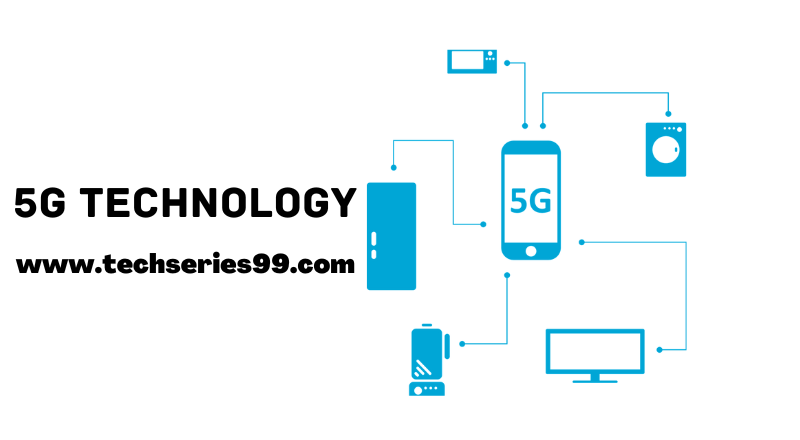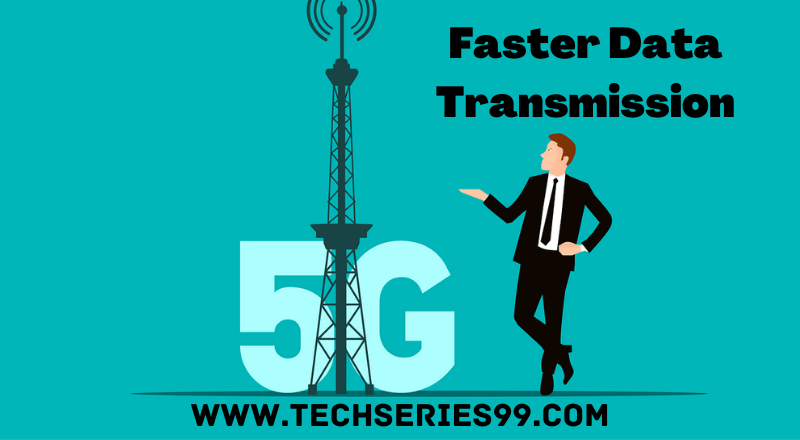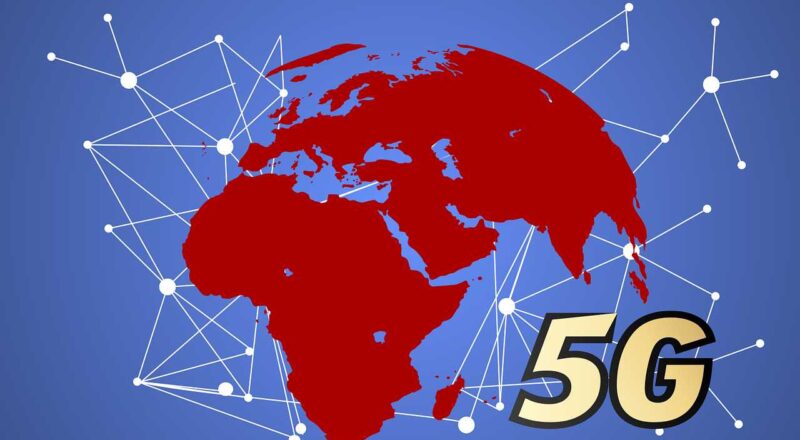Function of 5G?

Wireless communication systems make use of radio waves (also called spectrum) to carry information across the air.
5G works exactly the same way however, it uses higher frequencies, which are less crowded. This lets it transmit greater amounts of information at a quicker speed. These higher bands are known as millimeter waves (mm waves).
They were once unexplored however they have now been made available to license by the regulatory authorities. They were mostly unnoticed by the general public because the equipment required to use them was not readily accessible and costly.
Higher bands are more efficient in carrying information, there could be problems when transmitting over large distances. They can be blocked by physical obstructions like buildings and trees. To avoid this issue, 5G will utilise multiple input and output antennas to increase the signal strength and capacity of the network.
Who invented the Fifth Generation Network?
The first country to implement 5G on a massive scale began to adopt on a large scale was South Korea, in April 2019, when there were around more than 224 operators across more than 88 countries making investments on the new technology. For South Korea, all the 5G operators utilized Samsung, Ericsson and Nokia base stations and equipment except for one, which made use of Huawei equipment.
Of all the companies, Samsung was the largest of them, shipping 53,000 base stations out of the complete of 86,000 base stations across the United States that time. The current list includes nine firms selling 5G radio systems and equipment for operators. These include Altiostar, Cisco Systems, Datang Telecom, Ericsson, Huawei, Nokia, Qualcomm, Samsung and ZTE.
Benefits from 5G Network over the 4G network 5G Network over the 4G Network
The primary benefit that 5G network networks have over 4G has to do with the speeds of their connections. But, there are benefits relating to lower latency, which means faster responses as well as rapid download speeds. This allows for a variety of possibilities for applications in the industry due to the increased efficiency of operations.
Some of the 5G applications are superfast broadband without the requirement for landlines and 5G mobile telecommunications. the development of smart factories, holographic technologies TVs remote healthcare, driverless vehicles that use 5G communications as well as car-to car communication.
A lot of these technological advancements will be made possible by lower latency, which will allow 5G gadgets to be responsive quicker to commands. The term “latency” refers to the time between a command being sent and the response that is received. 3G has a latency of 65 milliseconds advanced 4G has 40 milliseconds in latency while fixed broadband is around 10-20 milliseconds.
Comparatively, 5G is expected to be able to operate at a minimum of 1 millisecond of latency permitting critical or Internet-of-Things applications to operate at a lower speed than the 4-millisecond threshold for an enhanced wireless broadband.
What is the speed of 5G in comparison to 4G or 3G?

If 5G can achieve the anticipated speed of data at 10 Gps that could be 100 times more efficient than the standard 4G. It is also thirty times more efficient than modern 4G standards, such as LTE-A. But even using more cautious estimates, it is likely to surpass both 3G and 4.
3G has an average download speed of 8Mbps. With the maximum speed is 384Kbps. 4G comes with an 32.5MBps standard download speed, and the maximum speed is 100Mbps. 4G+ boasts a 42Mbps standard and an maximum rate of 300Mbps. In contrast, 5G it has an average download speed of 130 to 240Mbps and a theoretical speed of 1-10Gbps.
For instance it will take approximately 4 to 40 minutes for downloading an HD movie on 5G, when compared to more than seven minutes with 4G and more than three hours on 3G.
Does 5G mean that 4G will be replaced by 5G? When?
5G will not replace 4G in the near future. There are estimates that it could take years before 4G completely disappears.
This is especially relevant in rural areas, in which the costs of deployment is excessive and the need for low latency may not be as crucial.
What is the Date for the Rollout of 5G Networks Expected?
The first 5G launches will be dependent on the existing 4G LTE network. The rollouts are anticipated to occur in the areas with the highest traffic.
For instance for instance, The UK is expected to see 5G rolling across 26 cities from 2019 and 2020. London, Birmingham, Manchester, Edinburgh, Cardiff and Belfast will be the first cities to be prepared for the new technology.
What does 5G technology mean for you? new equipment?
With regards to mobile phones, there’ll eventually be a requirement for a change to a 5G smartphone. If you don’t have one of the phones that are available in the market like the five-inch LG V50 THINQ as well as Xiaomi Mi Mix 3 smartphones. Xiaomi Mi Mix 3 5G phones.
However, with more phones is expected to hit the market within the next 12 months , and the estimated time for the full launch it is not a urgency to upgrade your current device at this point.
Are we ready for 5G?
While 5G-based services have been rolling out in nations like that of the US as well as South Korea, this is only in a limited manner with limited coverage currently. While in the UK, 5G is still in the early stages of development. However, the rollout will continue to be carried out until 2020 with additional locations being built.
At the moment the world is not fully prepared, but efforts are being taken to make the technology.
How will 5G change everything?
5G is set to revolutionize many different products such as services, industries and products. Although the technology is expected to provide the ability to improve performance of mobile technology (as previously mentioned) but there are numerous other applications like it will impact.
Fixed wireless connectivity will bring one of the benefits for commercial and residential use since this fifth-generation network is expected to provide internet connectivity that rivals fiber broadband, eliminating the requirement for a landline as well as providing an improved internet connection to remote regions.
The company will also offer several Remote applications. Some some trials taking place already together with the NHS to monitor remote changes in a patient’s health. Remote functionality has also been used to let LG and Doosan remote control an excavator in another continent.
5G, Smart Factories and smart devices
A white paper published by HMS Labs, has concluded that 5G could revolutionize production processes at production lines. The technology will result in more secure and efficient manufacturing processes with more flexibility.
The new model of smart factories will increase automation. This won’t only reduce costs but enhance product quality by reducing the possibility of human mistakes. Smart factories will also allow flexible products that can respond to demand rapidly, efficiently and economically. The white paper claims that this all can be achieved through the reliability, scaleability and the performance of 5G.
Benefits of Business
While the benefits for consumers of more reliable, faster connections with lower latency and faster connection are apparent 5G is also expected to bring real benefits for businesses. 5G will give better remote working options for employees, making them more efficient and productive since there will be no need to travel.
Network slicing can also enable businesses to set up their own networks that be tailored to their needs as well as the faster speeds and the lower latency can have an positive impact on efficiency and productivity. The rural communities are also going to be more connected, opening up greater opportunities for businesses operating in these regions.
What is the impact of 5G on future Technology?
The primary and obvious benefit is that it’s more efficient and reliable than 3G or 4G. It also means you’ll be in a position to download a film on your home broadband 5G in just a few seconds and stream a film in 4K without buffering, there will improvements in augmented and virtual real-time applications.
Because of 5G’s capability and low latency sophisticated processing capabilities will be able to be controlled remotely, rather than relying on mobile phones and headsets to handle local processing.
Read More : Cloud Computing | The key to UPGRADE
